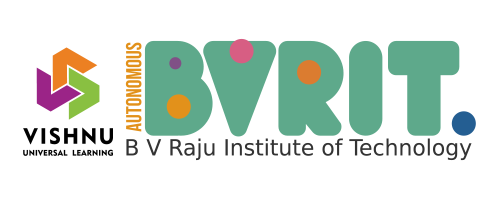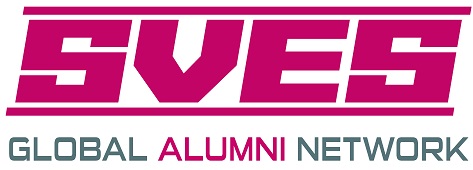B V Raju Institute of Technology, Narsapur is one of the top educational institutes in the Telangana State. BVRIT had a vibrant and dynamic Institute Innovation Cell (IIC) with Design Thinking, Ideation, Intellectual property and pre-incubation cells as four pillars. BVRIT is dedicated to promoting innovation and entrepreneurship to convert the student’s and faculty’s innovative ideas/problems to tech-solution with a feasible business model stage. The IIC has been organizing various events to encourage students and faculty of the institute in various domains in connecting with design thinking, innovation, ideation and incubation. The students and faculty will come up with tech solutions for the problems from Industry, Society, and Market to generate Ideas/Proof of Concepts (PoCs) and help them to get converted to prototypes and mentor them to develop business models ready. Therefore, creating a strong pipeline of quality and quantity tech-based potential start-ups for the incubator industry to take further from students, faculty and alumni of the institute.
The BVRIT will have foresighted thinking in all prospects among all other engineering colleges and thus it is initiated the start-up ecosystem in the campus. The institute has to support for faculty and student startups by providing all the necessities as per the National Innovation and startup policy 2019 for students and faculty guidelines as a minimum of 1% of the total budget should be used for startup cell activities in the institute. The Atal Ranking of Institutions on Innovation Achievements (ARIIA) ranking (2021) has 70% of marks to promote Innovation, Entrepreneurship and Start-up and it is clearly states the importance of start-up cells in the institute. The start-up cell also helps the institute in obtaining a good rank in NIRF and NBA as there is a good weightage in the domains of patents filed, patents granted, consultancy and industry collaboration.
Vision
The ‘National Student and Faculty Startup Policy-2019’ is initiated by MHRD’s Innovation Cell and AICTE. It is a guiding framework to envision an educational system oriented toward start-ups and entrepreneurship opportunities for students and faculties.
The guidelines provide ways for developing entrepreneurial agenda, managing Intellectual Property Rights (IPR) ownership, technology licensing and equity sharing in Start-ups or enterprises established by faculty and student and encourage them to actively pursue the path of innovation and entrepreneurship
Our vision is to develop high-quality technical human resources capable of doing cutting-edge research and innovation and deep-tech entrepreneurship.
Mission
- Establishing a vibrant and dynamic Startup Ecosystem across all the departments.
- Enable the institute to actively engage students, faculties and staff in innovation and entrepreneurship-related activities.
- Creating a space for Collaboration, Co-creation, Business Relationships and Knowledge Exchange.
- Facilitate the institute in terms of Intellectual Property (IP) ownership management, technology licensing and equity sharing.
Objectives
- To promote and foster the spirit of entrepreneurship.
- To create awareness about entrepreneurship by periodically organizing Workshops, Lectures and other activities that can facilitate knowledge creation and innovation.
- To create a Startup Ecosystem through strategic investment, scaling up and providing a resourceful consultancy leveraging the innovation climate.
- To incubate early-stage entrepreneurial ventures based on technology and innovation.
- To identify and facilitate the generation of innovative technology solutions that have the potential for commercial ventures and social impact in the sectors like Clean Environment, Green Energy/Alternative Energy, Health Care, Food & Beverages, and Education, etc.
Scope and Importance of Establishing the Start-Up Policy
The start-up cell may have an impact on the various evaluation systems such as NIRF, AICTE, MHRD – MIC norms, ARIIA and NBA and the brief details are presented below for your kind information.
- Research and Professional Practice (RP)
- IPR and Patents: Published and Granted (IPR)
- The footprint of Projects and Professional Practice (FPPP)
Investment in entrepreneurial activities should be a part of the institutional financial strategy. A minimum 1% fund of the total annual budget of the institution should be allocated for funding and supporting innovation and startups related activities through the creation of a separate ‘Innovation fund’.
The Institute Innovation Cell (IIC) has been organizing various events in connection with MHRD-IIC and in addition to that the institute may initiate the startup cell to promote the incubation and enhance the innovation culture in the institute.
More than 60% of marks are distributed to the innovation and startup support, funding, revenue generation, IP and etc.
Students, Innovators and Entrepreneurs
- Student Entrepreneur in Residence – Universities shall be encouraged to introduce the concept of Student Entrepreneur in Residence. Outstanding students who wish to pursue entrepreneurship can take a break of one year, after the first year, to pursue entrepreneurship full time. This may be extended to two years at the most and these two years would not be counted towards the maximum time for graduation. The Gap Year facility may be given to ensure syllabus continuity at the time of joining back and after an appraisal process by an incubator where the student is attached.
- IT & Entrepreneurship @ College level I. All Universities in Telangana shall be encouraged to grant 5% grace marks and 20% attendance every semester for student Startup teams. Guidelines for the same shall be framed in consultation with the institutions.
- Kind of Company
- Capital support
- Other support from the institute
- Financial sharing with start-up
- IPR
- Loan amount recovery
- Role of Faculty
- Methodology
1. Kind of Company:
- Companies jointly owned by the faculty members and graduate students/alumni (along with possible others)
- Companies owned by the faculty members (one or many) along with possible others.
- Companies owned by the graduating students, alumni along with possible others.
2. Capital support:
The faculty/student start-up may have its own funding and accounting procedures in line with the prevailing statutory norms. The faculty/student may apply for various funding sources with institute support. The institute may support for funding based on the IIC committee decision and as per the funding support provided the institute’s contribution in the company may be decided.
3. Other Support from the Institute:
The faculty/student start-up may utilize the necessary facilities such as office, operational space, permission to use laboratories, workshop facilities and equipment, business management advice, networking support, mentoring, seed fund when possible, and monitoring.
4. Financial Sharing with Start-up:
The faculty/student start-up may utilize the financial support from the institute and the institute may have a 1 to 6% share in the start-up. The IIC committee will review the quarterly financial report of the start-up. The Institute will have the right to liquidate the shares after 5 years of the start-up with the decision from the start-up. The share price may be evaluated on a mutual basis or price calculated by experts.
Case 1: If the institute provides only necessary support without any financial assistance in seed and capital outside of the institute premises, the institute share is 1% of the net earnings of the start-up.
Case 2: If the institute provides the necessary support at the institute premise without financial assistance, the institute share is 2% of the net earnings of the start-up.
Case 3: If the institute provides the necessary funds outside of the organization the distribution of net earnings as given below
| S.No | Total net earnings | Percentage (up to 2.5 lakhs) | Percentage (2.5-5 lakhs) | Percentage ( 5-10lakhs) | Percentage (10lakhs) |
|---|---|---|---|---|---|
| 1 | Not exceeding 10 Lakhs | 0.05 | 0.06 | 0.07 | 0.08 |
| 2 | Above 10 Lakhs Less than 25 Lakhs | 0.06 | 0.07 | 0.08 | 0.09 |
| 3 | Above 25 Lakhs Less than 50 Lakhs | 0.07 | 0.08 | 0.09 | 0.1 |
| 4 | Above 50 Lakhs Less than 1 Crore | 0.08 | 0.09 | 0.1 | 0.11 |
| 5 | Above 1 crore | 0.09 | 0.1 | 0.11 | 0.12 |
Case 4: If the institute provides the necessary funds outside of the organization the distribution of net earnings as given below
| S.No | Total net earnings | Percentage (up to 2.5 lakhs) | Percentage (2.5-5 lakhs) | Percentage (5-10lakhs) | Percentage (10lakhs) |
|---|---|---|---|---|---|
| 1 | Not exceeding 10 Lakhs | 0.07 | 0.08 | 0.09 | 0.1 |
| 2 | Above 10 Lakhs Less than 25 Lakhs | 0.08 | 0.09 | 0.1 | 0.11 |
| 3 | Above 25 Lakhs Less than 50 Lakhs | 0.09 | 0.1 | 0.11 | 0.12 |
| 4 | Above 50 Lakhs Less than 1 Crore | 0.1 | 0.11 | 0.12 | 0.13 |
| 5 | Above 1 crore | 0.12 | 0.13 | 0.14 | 0.15 |
5. Intellectual Property Rights (IPR):
The institute faculty/students may use an IPR filed/granted with institute affiliation in the start-up. If the start-up may file a new patent in the relevance of institute’s existing IPR, prior permission and license agreement may be required.
6. Loan Amount Recovery:
The institute may support initial seed money for a start-up. The seed money may be recovered based on the progress of the start-up. The IIC will review the financial status quarterly of a start-up. The IIC committee will decide on the recovery of the loan amount based on the start-up performance. The interest on seed money may be waived for the first year and the repayment of seed money may be initiated after 18 months (from the loan amount receiving date) and the simple interest rate may be used for calculation.
7. Role of Faculty:
The faculty/ student is expected that the faculty members would be owners of such companies and be Director on the Board. Also, the faculty member may choose to play an operational role (Technical Advisor, CEO, Marketing Manager, etc).
- The faculty/student can work in start-up two days a week
- The faculty/student can work after the college time
- The faculty can take a sabbatical leave and work full-time in the start-up
- The faculty can take EOL and work full-time in the start-up
- The faculty member is expected to complete all his responsibilities on time
- The students can have an attendance exception to 15 % and below 60% is not permissible
- The student is expected to full fill all responsibilities to obtain a degree
BVRIT Institutional Norms
| S.No. | Component | Functionality |
|---|---|---|
| 1 | Kind of company | Faculty / student |
| 2 | Capital support | Seed funding ( 0 to 10 lakhs) |
| 3 | Other support from the institute | All institute facilities, labs, testing and etc |
| 4 | Financial sharing with start-up | The faculty/student start-up may utilize the financial support from the institute and the institute may have 1 to 6% share in the start-up. |
| 5 | IPR | The institute-affiliated patent may be used for start-ups. For a similar kind of patent application, the institute’s permission is required. For a new patent, the start-up will have full rights. |
| 6 | Loan amount recovery | First-year no interest. After 18 months from the date of the first disbursement of a loan with simple interest. |
| 7 | Role of Faculty | Director on the Board, Technical Advisor, CEO, Marketing Manager, etc. Weekly two days, off time, EOL, sabbatical leave |
| 8 | Methodology | A Company will necessarily be required to be incubated in the Institute. However, in exceptional cases, the institute may allow a faculty member to open/operate/incubate the Company outside the institute if sufficient justification is provided. |
For staff and faculty, the institute would take no more than 20% of shares that staff/faculty take while drawing a full salary from the institution; however, this share will be within the 9.5% cap of company shares, listed above.
BVRIT Narsapur – Startup Evaluation Committee
- Principal
- Vice Principal
- Dean R&D
- IIC President & Vice President
- Startup cell In-charge
- Department HOD
- IIC Design Thinking, Ideation, Intellectual property and pre-incubation coordinators
Upon review by the institute evaluation committee, the idea will be evaluated at the society level and decisions will be taken for further processing.
- Chairman
- Vice Chairman
- Principal
- Vice Principal
- Startup cell In-charge
- Department HOD
A committee has been formed by identifying the experts having expertise and experience in the domain of innovation, IPR and startup to start the work of policy formation and implementation of guidelines at the institute.
| S.No. | Name of the Faculty/Expert | Designation | Email ID |
|---|---|---|---|
| 1 | Dr. E. Laxmi Narsaiah | President | laxminarsaiah.emmadi@bvrit.ac.in |
| 2 | Dr. V. Murali Krishna | Vice President | muralikrishna.vemula@bvrit.ac.in |
| 3 | Dr. K. Dasaradh Ramaiah | Executive Member | dasaradh.k@bvrit.ac.in |
| 4 | Dr. K. Purnachand | Convener | purnachand.k@bvrit.ac.in |
| 5 | Dr. M.C. Chinnaiah | Member | chinnaaiah.mc@bvrit.ac.in |
| 6 | Dr. G. Srinivas | Member | g.srinivas@bvrit.ac.in |
| 7 | Mr. N. Ramchander | Member | ramchander.nirudi@bvrit.ac.in |
| 8 | Mr. P. Chandra Babu | IIC Coordinator | chandrababu.p@bvrit.ac.in |
| 9 | Mr. Avinash | IP Consultant and Legal Advisor | avinash.amd@gmail.com |
| 9 | Mr. B. Ravi Teja | Entrepreneur | bekuraviteja@sreevence.com |
| 10 | Mr. C. Avinash Reddy | Entrepreneur | avinash@constelli.com |
Policy Document – Click to view










